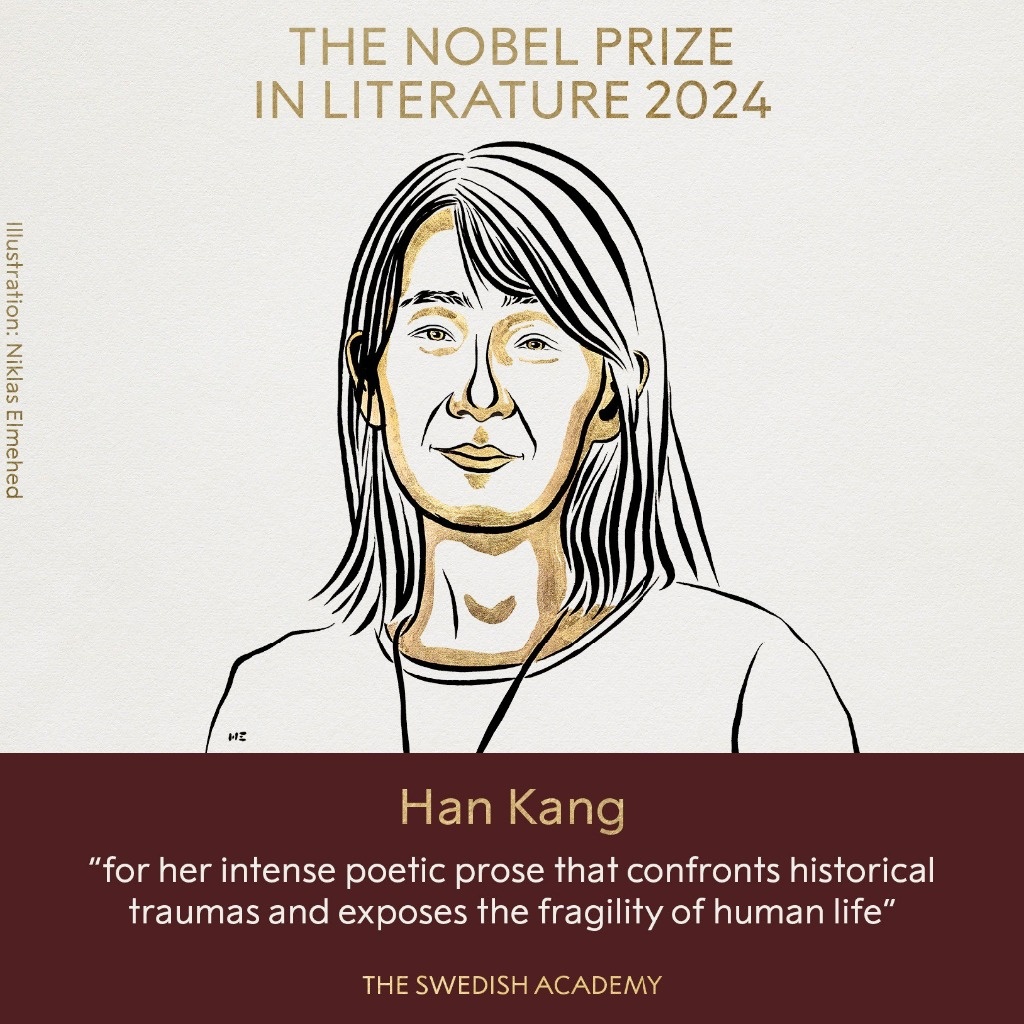Stockholm. The South Korean Han Kang, author of novels and poems, won the Nobel Prize in Literature this Thursday for “her intense poetic prose, which confronts historical traumas and exposes the fragility of human life,” the Swedish academy announced.
Han Kang, 53, is the first South Korean to receive the prestigious literature award.
Parallel to writing, the author dedicated herself to art and music, which is reflected in her entire literary work.
“Han Kang’s work is characterized by this double exposure of pain, a correspondence between mental torment and physical torment, in close relationship with Eastern thought,” said the Swedish academy.
The writer has “a unique awareness of the relationships between the body and the soul, the living and the dead and, due to her poetic and experimental style, she is considered an innovator in the field of contemporary prose,” the president declared before the press. of the Nobel Committee, Anders Olsson.
erotic exploitation
Han Kang became internationally known with his novel The vegetarian (2007) -translated into Spanish-, which earned him the Man Booker Prize in 2016, one of the main English-speaking literary prizes.
Written in three parts, the work describes the violent consequences of its protagonist, Yeong-hye,’s refusal to eat meat, which causes the brutal rejection of his environment.
In this novel, the author tells how Yeong-hye will be exploited “erotically” by her brother-in-law, who develops an obsession with her “passive body,” the academy emphasizes.
The reader follows how the protagonist progressively sinks into a psychosis that will lead her to psychiatric confinement.
“There is a continuity in the themes addressed that is notable, but at the same time, an enormous stylistic variation that makes each book a new aspect or a new expression of these central themes,” analyzed Anna-Karina Palm, a member of the Swedish academy. .
Born on November 27, 1970 in Gwanju, South Korea, Han Kang arrived in Seoul when she was nine years old. His father, Han Sung-won, was a writer and his brother Han Dong-rim also writes. Both were encouraged to develop their taste for arts and music, as well as letters.
Han Kang decided to study literature and began publishing poems in 1993, earning him a newspaper prize. Seoul Shinmun in 1994.
“Blacklist”
Han Kang is also a committed woman.
The South Korean author was on a “blacklist” of almost 10,000 personalities from the world of culture in South Korea accused of having criticized President Park Geun-hye, in power between 2013 and 2017.
Several figures close to power were accused of having wanted to leave these artists without public aid or private financing, as well as of having placed them under surveillance.
Another of his works translated into Spanish is Greek class (2017), a book that tells the story of a woman who has lost her voice and her only hope of regaining it is by learning Greek.
In an interview last year in the newspaper El País, the author praised the work of the Argentine writer Jorge Luis Borges, very present in this novel.
The other South Korean who was awarded a Nobel Peace Prize was former president (1998 to 2003) Kim Dae-Jung in 2000 for “his work for peace and reconciliation with North Korea.”
Last year, Norwegian playwright Jon Fosse received the prestigious award for letters.
After the Nobel Prizes have honored work in the sciences, the Nobel Committee at the Swedish Academy announced the literature award for South Korean author Han Kang, ““for her intensely poetic prose that confronts historical traumas and exposes the fragility of human life.” Infographic Graphic News
#Nobel #Prize #Literature #South #Korean #Han #Kang #intense #poetic #prose
–
